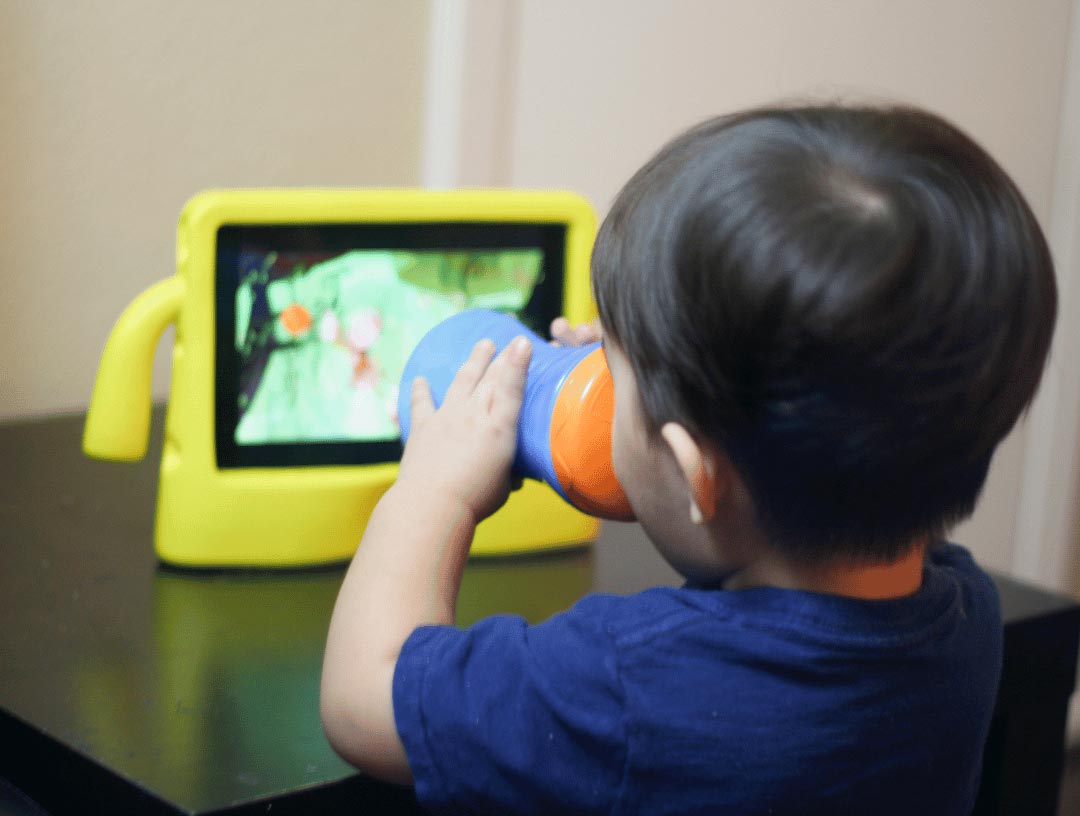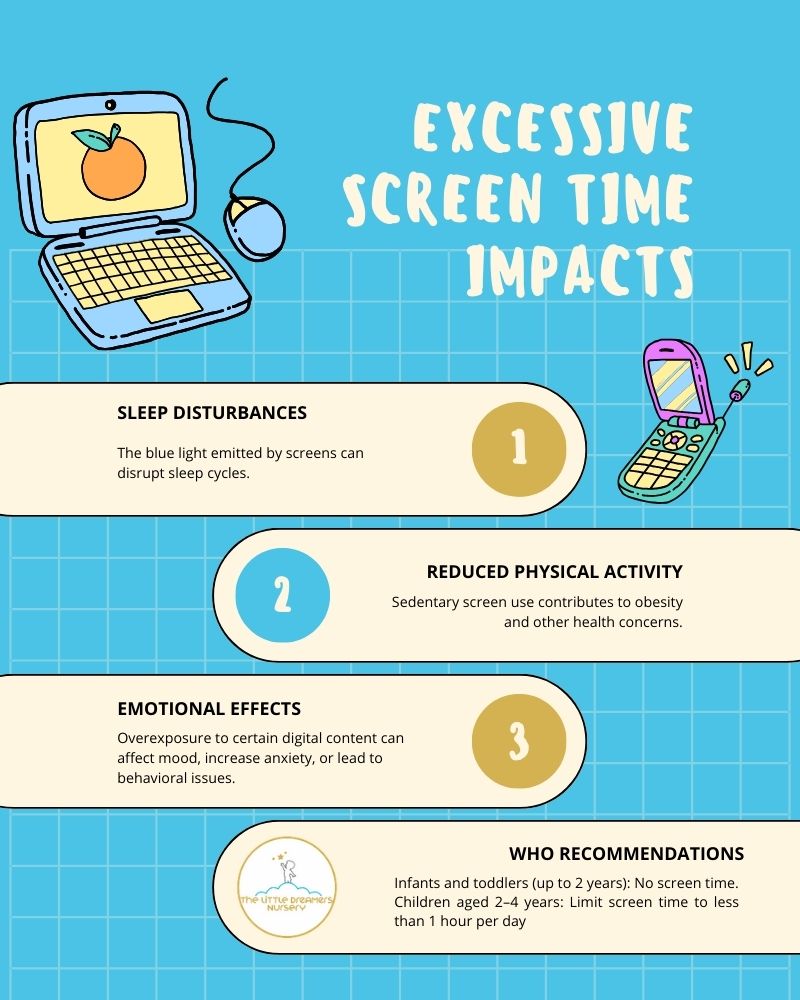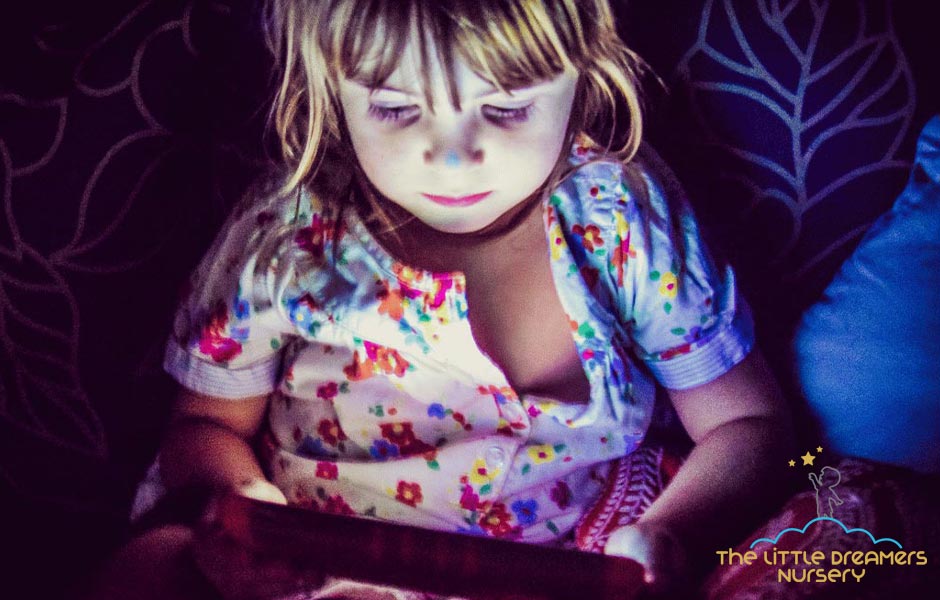Screen Time and Children
In today’s digital age, children are growing up surrounded by screens and technology. While digital media offers numerous benefits and educational opportunities, it’s important to strike a balance between screen time and offline activities. As parents and educators, we play a crucial role in guiding children towards a healthy relationship with technology.
In this article, we will explore effective strategies for managing screen time, setting guidelines, and fostering a well-rounded childhood that includes both digital engagement and offline experiences.
What is Screen Time?
Screen time refers to the amount of time spent in front of electronic devices such as televisions, computers, tablets, and smartphones. It encompasses various activities, including watching videos, playing games, browsing the internet, and engaging with social media platforms.
To dive deeper into managing your child’s gaming habits specifically, check out our guide on How to Manage Your Child’s Video Game Time: A Guide for Parents.
The Impact of Screen Time on Children
While screen time can provide educational and entertainment value, excessive or unregulated screen time can have negative effects on children’s physical and mental well-being. Studies suggest that excessive screen time may lead to sedentary behavior, poor sleep quality, decreased physical activity, and challenges with social skills and emotional regulation.
Recommended Screen Time for Kids
Experts emphasize that not all screen time is bad, but age-appropriate limits are crucial for ensuring a child’s well-being.
What Do the Guidelines Say?
World Health Organization (WHO)
The World Health Organization (WHO) provides clear recommendations to limit screen time for young children:
- Infants and toddlers (up to 2 years): No screen time.
- Children aged 2–4 years: Limit screen time to less than 1 hour per day (World Health Organization, 2019).
American Academy of Pediatrics (AAP)
The American Academy of Pediatrics offers detailed guidance for managing screen time:
- Under 18 months: Limit screen use to video chatting with an adult, such as a parent who is away.
- 18–24 months: Screen time should be limited to high-quality, educational programming watched with a caregiver.
- Ages 2–5: Restrict non-educational screen time to about 1 hour per weekday and up to 3 hours on weekends.
- Ages 6 and older: Encourage healthy habits and ensure screens don’t replace essential activities like sleep or physical exercise.
Other key recommendations:
- Turn off screens during family meals and outings.
- Avoid using screens as a way to pacify or stop tantrums.
- Turn off screens 30–60 minutes before bedtime and remove them from bedrooms.
- Use parental controls to monitor content and set time limits.
Strategies for Balancing Screen Time and Offline Activities
-
 Establish Clear Screen Time Guidelines
Establish Clear Screen Time Guidelines
Setting clear and age-appropriate screen time guidelines is essential. Discuss the importance of balancing screen time with other activities such as physical play, creative pursuits, reading, and social interactions. Create a screen time schedule that outlines specific time limits for different activities.
-
Lead by Example
Children learn by observing the behavior of adults. Model healthy screen time habits by limiting your own device use and engaging in offline activities. Show enthusiasm for hobbies, physical exercise, and quality time spent with loved ones. Your actions will inspire and motivate children to prioritize a balanced lifestyle.
-
Encourage a Variety of Offline Activities
Promote a wide range of offline activities that nurture children’s physical, cognitive, and social development. Encourage outdoor play, imaginative play, arts and crafts, reading, and family activities. Provide resources, materials, and opportunities for children to explore their interests and engage in hands-on experiences.
-
 Create Screen-Free Zones and Times
Create Screen-Free Zones and Times
Designate specific areas in your home or nursery as screen-free zones, such as bedrooms and mealtime areas. Establish screen-free times, such as during family meals or before bedtime, to encourage face-to-face communication, bonding, and relaxation. Create an environment that supports meaningful connections without digital distractions.
-
Engage in Co-Viewing and Co-Playing
When children do engage in screen time, make it a collaborative and interactive experience. Co-view programs or play video games together, discussing the content and encouraging critical thinking. Use this time as an opportunity for meaningful conversations, learning, and bonding.
-
Encourage Mindful and Purposeful Screen Time
Encourage children to engage in high-quality, educational, and age-appropriate content. Encourage them to explore educational apps, interactive learning platforms, and engaging multimedia that promote critical thinking, creativity, and problem-solving skills.
Help them understand the difference between passive and active screen time and guide them towards meaningful digital experiences.
-
Set Screen Time Rules and Use Parental Controls
Establish specific rules for screen time, such as no screens before homework is completed or limiting recreational screen time to a certain duration. Utilize parental controls and monitoring tools to ensure age-appropriate content and limit access to inappropriate material. Regularly discuss and reinforce these rules with your child.
-
Encourage Physical Activity and Outdoor Play
Promote physical activity and outdoor play as alternatives to screen time. Provide opportunities for children to engage in sports, active games, and nature exploration. Outdoor play not only promotes physical health but also enhances cognitive and social development.
-
Foster Open Communication
Maintain open lines of communication with your child about their screen time habits and experiences. Encourage them to share their thoughts, concerns, and questions about technology. Be supportive and provide guidance, helping them develop critical thinking skills and responsible digital citizenship.
-
Emphasize Restorative Sleep
Establish consistent sleep routines and emphasize the importance of quality sleep. Limit screen time before bedtime, as exposure to the blue light emitted by screens can interfere with sleep patterns. Create a calm and screen-free bedtime routine that promotes relaxation and prepares children for a restful sleep.
Why Balance Matters
 Understanding the potential impacts of excessive screen time highlights the importance of moderation.
Understanding the potential impacts of excessive screen time highlights the importance of moderation.
Physical and Emotional Impacts
Excessive screen exposure is linked to:
- Sleep disturbances: The blue light emitted by screens can disrupt sleep cycles.
- Reduced physical activity: Sedentary screen use contributes to obesity and other health concerns.
- Emotional effects: Overexposure to certain digital content can affect mood, increase anxiety, or lead to behavioral issues.
Social and Cognitive Development
Screen dependency can hinder the development of essential life skills such as communication, critical thinking, and social interaction. Limiting screen use ensures children have time to engage in real-world experiences and foster healthy relationships.
Healthy Alternatives to Screen Time
Providing engaging, screen-free activities can make managing screen time easier for parents and more enjoyable for kids.
Physical Activities for Kids
Encouraging movement and outdoor play supports physical health and development:
- Sports and Games: Soccer, tag, and hopscotch promote teamwork and fitness.
- Nature Walks: Explore parks or local trails to spark curiosity and appreciation for the environment.
- Obstacle Courses: Create a backyard course to challenge balance, coordination, and problem-solving skills.
Creative and Educational Activities
Stimulate your child’s imagination and intellect with hands-on projects:
- Arts and Crafts: Painting, drawing, and DIY projects foster creativity and fine motor skills.
- Storytelling and Role-Playing: Encourage your child to invent stories or act out favorite characters to enhance language and emotional expression.
- STEM Activities: Try simple experiments or build structures with blocks to develop cognitive and problem-solving abilities.
Social and Cooperative Play
Spending time with others teaches valuable interpersonal skills:
- Playdates: Arrange meetups with friends for cooperative games or imaginative play.
- Board Games and Puzzles: Collaborative games teach patience, strategy, and teamwork.
Conclusion
Balancing screen time and offline activities is crucial for children’s overall well-being and development. By establishing clear guidelines, encouraging a variety of offline activities, and fostering open communication, we can help children develop a healthy relationship with technology.
At The Little Dreamers Nursery in Dubai, we understand the importance of nurturing a well-rounded childhood, where digital engagement is balanced with physical play creativity, and social interactions.
As a leading nursery in Dubai, we prioritize the holistic development of your child. Our dedicated staff is committed to providing a safe and stimulating environment where children can explore their interests, engage in hands-on activities, and develop essential life skills.
Contact The Little Dreamers Nursery today to learn more about our programs and how we promote a balanced approach to screen time and childhood development. Together, let’s guide our little dreamers towards a bright and balanced future.









